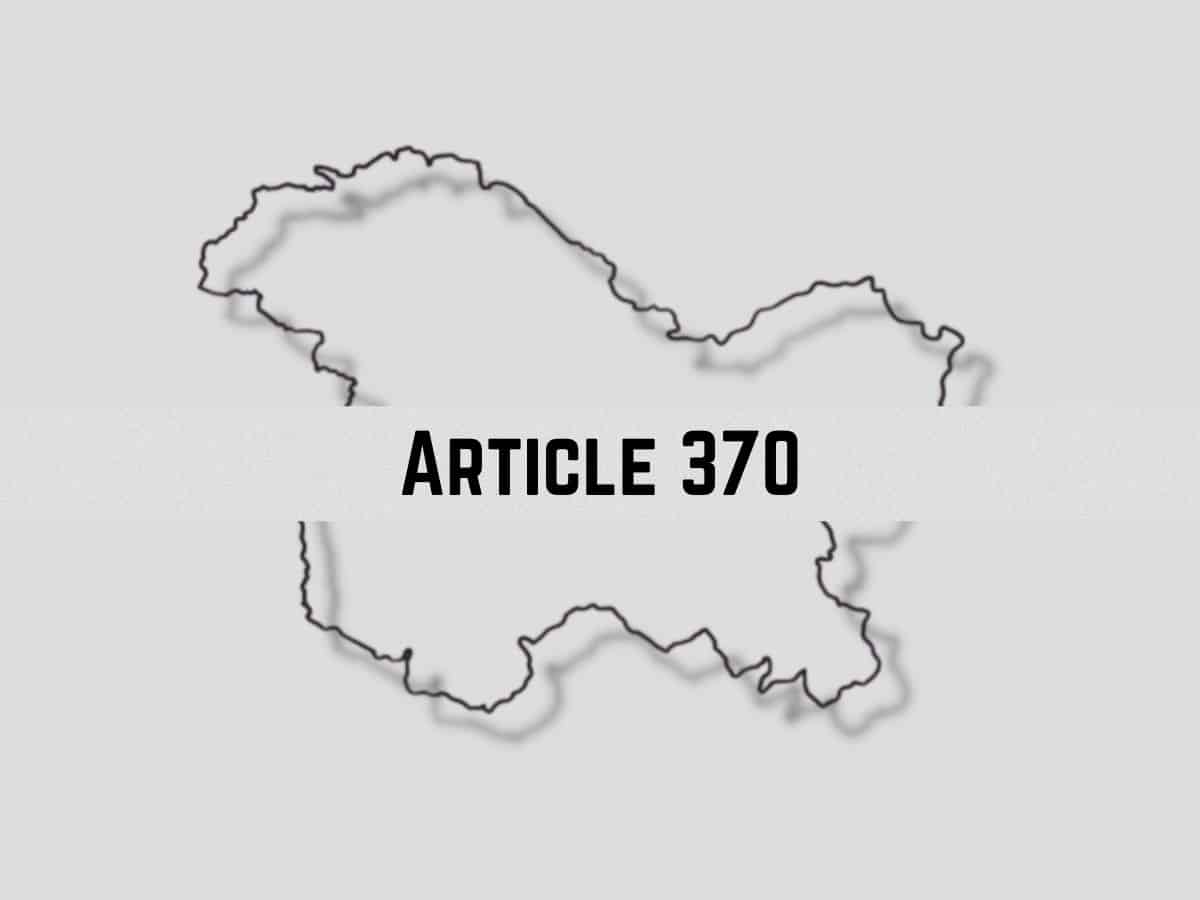
Srinagar: The Supreme Court upholding the Centre’s decision to abrogate Article 370 evoked varied reactions from political parties in Jammu and Kashmir, with the National Conference vowing to continue its struggle while the BJP welcomed it and said the judgment will be honoured in “letter and spirit”.
The ruling sparked a range of reactions, reflecting the complex and deeply held views on the issue.
As the apex court’s Constitution bench finished delivering its verdict, National Conference vice-president Omar Abdullah expressed his disappointment on ‘X’ but vowed to continue the struggle.
The former chief minister of the erstwhile state acknowledged that it took the BJP decades to reach this point, emphasising their preparedness for the long haul.
“Dil na-umid to nahin nakam hi to hai, lambi hai gham ki shaam magar shaam hi to hai (I grieve but I do not despair, the dusk of sadness is long, but it’s just a dusk, that’s all),” the National Conference leader said.
While upholding the government’s decision on Article 370, a five-judge bench of the Supreme Court also directed that statehood to the Union Territory of Jammu and Kashmir be restored at the earliest and said steps should be taken to conduct elections to the Assembly in the Union Territory by September 30 next year.
J-K BJP chief Ravinder Raina welcomed the verdict, stating that they honour and respect it in letter and spirit. He reiterated the Centre’s commitment to holding assembly elections and restoring statehood to J-K.
“We are proud of our country, Constitution and our judiciary. We respect and honour the judgment of the Supreme Court in true letter and spirit,” Raina told PTI.
He said the Centre has made it clear it is ready to hold assembly elections but the decision has to be taken by the Election Commission.
Sunil Sethi, the J-K BJP’s chief spokesperson, said it is better not to give a political colour to the judgment.
“This is a historic judgment as it puts to rest the questions raised on the complete integration of J-K,” Sethi said.
In Chandigarh, the BJP’s in-charge for Jammu and Kashmir and Ladakh Tarun Chugh said the verdict is a victory for the country. “The Supreme Court verdict makes it clear that Congress could have removed the temporary provision of Article 370 earlier but due to the appeasement politics of Nehru-Gandhi families, Abdullah and Mufti families, they did not do so,” he alleged.
PDP chief Mehbooba Mufti, however, described the verdict as a “death sentence” not only for J-K but also for the idea of India.
She urged people not to lose hope, emphasising that the struggle in the region has been a political fight spanning decades.
Democratic Progressive Azad Party chairman Ghulam Nabi Azad termed the verdict “sad and unfortunate”.
Peoples Conference chief Sajjad Lone found the verdict disappointing. He emphasised that while Article 370 may have been legally obliterated, it will remain a part of their political aspirations.
The Apni Party said the verdict has deeply saddened the people of Jammu and Kashmir.
“It is the responsibility of the central government to come forward and assure the people that they will not be subjected to disempowerment,” it said.
Constitutional expert and editor of Epilogue News Network Tito Ganju said, “In ruling in favour of the validity, the court eloquently dismantled the constitutional nuances surrounding Article 370.”
The displaced Kashmir Pandits welcomed the decision, saying it was a historic judgment to bury Article 370 once for all.
“It (verdict) has put to rest all the controversies surrounding it. We are happy about the decision,” chairman of Panun Kashmir Dr Ajay Chrungoo told PTI.
Former general secretary of the All State Kashmiri Pandit Conference Dr TK Bhat said it is a red letter day for all the marginalised communities that have suffered for the past seven decades in Jammu and Kashmir due to Article 370.
SOS International, an organisation representing the displaced population of Pakistan-occupied Kashmir (PoK), welcomed the verdict, saying “there was nothing left in the act” over the years.
Deepak Kapoor, who heads the PoJK Visthapit Sewa Samiti, welcomed the Supreme Court verdict and said the abrogation of Article 370 in 2019 facilitated domicile certificates to 27,000 people settled in other parts of the country.
“They were all residents of Pakistan-occupied Jammu and Kashmir but settled in different parts of the country after their migration in 1947. They were never given their due rights on the pretext of Article 370,” he said.
Dogra scion Vikramaditya Singh welcomed the verdict as a “significant step” towards the complete integration of J-K into the Indian Union.
Singh, the grandson of the last Dogra ruler Maharaja Hari Singh, called upon all stakeholders to work together towards building a peaceful and prosperous J-K.
The verdict also brought relief to West Pakistan refugees, Gorkhas and Valmikis.
Labha Ram Gandhi, the West Pakistan Refugees Action Committee chairman, emphasised that the fear of Article 370’s return has now been dispelled.
“The scrapping of Article 370 was necessary for ensuring equal rights and opportunities for all residents of J-K, including West Pakistan refugees, Gorkhas, Valmikis and others,” he said.
Gorkha leader Narayan Singh said, “With this verdict, our community will for the first time vote in assembly elections.”
Valmiki Samaj leader Garu Bhatti said, “The abrogation of Article 370 came as a lifeline for our younger generations.”
